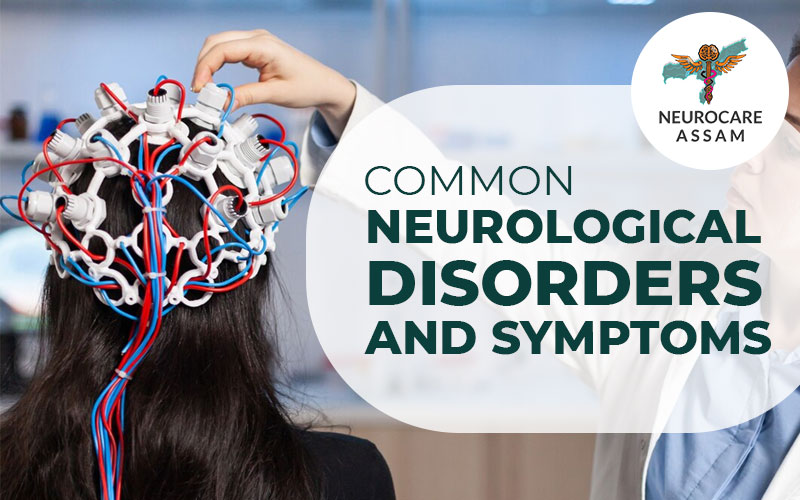
Common Neurological Disorders and Symptoms
From developmental problems to
chronic illnesses, neurological disorders cover a broad range of diseases
affecting the brain and nervous system. The human brain is vulnerable to a
variety of conditions that affect the brain, spinal cord, nerves, and other
parts of the nervous system because of its multifaceted role in regulating
thoughts, emotions, and body processes. An individual's quality of life may be
significantly impacted by certain diseases. This blog will discuss a few common
neurological conditions and their symptoms.
Autism
Spectrum Disorder:
Commonly referred to as Autism, it
is one of the well-known neurological disorders. Autism spectrum disorder (ASD)
is a developmental disorder that affects social interaction, communication, and
behavior.
Individuals with autism may exhibit
symptoms that include difficulty in socializing and forming relationships,
repetitive behaviors, restricted interests; speech and language delays; and
difficulties with verbal and non-verbal communication. The exact cause of
autism is unknown, although it is believed to be a combination of genetic and
environmental factors.
Attention
Deficit Disorder (ADD): ADD, also known as Attention
Deficit Hyperactivity Disorder (ADHD), is a neurodevelopmental disorder
characterized by inattention, hyperactivity, and impulsivity. It is another
prevalent neurological disorder, especially in children.
Individuals with ADD often have
difficulty in focusing, paying attention, forgetfulness, lack of organizational
skills, excessive energy levels, and controlling impulsive behaviors. This
disorder can significantly impact one's academic and professional life, making
it challenging to succeed in tasks that require sustained attention.
Acute
Spinal Cord Injury:
Another neurological disorder often
encountered is an Acute Spinal Cord Injury. This condition can result from
trauma, such as a car accident or fall, and often leads to varying degrees of
paralysis.
The symptoms of spinal injury and
extent of paralysis depends on the location and severity of the injury. Common
signs may include loss of sensation or movement, difficulty walking, weakness,
numbness, and in severe cases, paralysis. Acute Spinal Cord Injury can cause
significant physical and emotional challenges for individuals and their
families, requiring substantial rehabilitation and support.
Alzheimer's
Disease:
Alzheimer's is a degenerative brain
disease that mainly affects the elderly and impairs thinking, memory, and
behaviour. It is the most prevalent cause of dementia and is marked by
cognitive decline, disorientation, and memory loss. As the illness worsens,
people may get disoriented and find it difficult to identify their loved ones.
Typically, symptoms start out slowly
and get worse over time. Forgetfulness, trouble finishing familiar chores,
confusion, mood fluctuations, and retreat from social interactions are some of
the early warning indicators. Alzheimer's disease is unfortunately incurable,
which makes it a difficult illness for both sufferers and the people who care
for them.
Brain
Tumors: Brain tumors are abnormal growths of
cells in the brain. They can be either cancerous (malignant) or non-cancerous
(benign).
Brain tumours can produce a wide
range of symptoms, such as memory loss, migraines, seizures, vision issues,
trouble balancing, and personality changes. Depending on the location, size,
and growth rate of the tumour, these symptoms could change. Brain tumour
treatment choices are influenced by a number of variables, such as the
patient's general health and the type and location of the tumour.
Cerebral
Palsy (CP): A collection of conditions known as
cerebral palsy (CP) impact muscular coordination and mobility. It is brought on
by harm done to the growing brain either prior to, during, or after birth.
Fine motor skill issues, tremors,
and poor coordination are possible symptoms. Physical problems include
involuntary motions, rigid muscles, and trouble walking can be brought on by
cerebral palsy. People with cerebral palsy can, however, lead happy lives if
they receive early intervention and therapy.
Epilepsy:
The neurological condition referred
to as epilepsy is represented by recurring seizures. The brain's aberrant
electrical activity, which causes seizures, briefly impairs normal brain
function of the patients during epilepsy episodes.
Loss of consciousness, convulsions,
repetitive motions, disorientation, and spells of staring are just a few of the
various ways that epilepsy can show symptoms, ranging from mild to severe.
Medications and other treatments, such as surgery or a ketogenic diet, can help
manage seizures and improve quality of life for individuals with epilepsy.
Note:
It is important to note that these disorders have varying degrees of severity
and require proper medical diagnosis and treatment. If you or a loved one
experiences any concerning symptoms, it is crucial to consult a healthcare
professional for an accurate diagnosis and appropriate intervention.
In summary, neurological illnesses
have an impact on the physical, cognitive, and emotional aspects of life. Early
detection of symptoms enables immediate care, benefiting the general health of
those who are impacted. These illnesses are difficult to diagnose and cure,
requiring specialised medical care. Raising awareness is essential for early
discovery and getting the right care. Neurology research is constantly needed
to create efficient therapies and, eventually, discover solutions. Those with
neurological conditions can strive for fulfilling and meaningful living with
more compassion and support.



.jpg)

